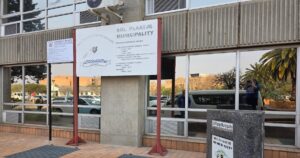The Democratic Alliance (DA) reiterates our calls for the MEC of Education, Abraham Vosloo, to be summoned before the Portfolio Committee on Education, Sport, Arts & Culture after more than six months have passed since many Northern Cape schools last received funding.
Schools have been left without funds needed for stationery, food schemes, critical repairs, cleaning supplies, support programmes for Grade 12 learners, and other essential education services. In the past week, we’ve also received increasing pleas for assistance from school hostels that cannot afford to feed the learners in their care.
The department’s financial recklessness has also culminated in the non-payment of pay progressions and salaries to newly appointed teachers, despite the department bragging about saving teachers’ jobs last year. Yesterday, the South African Democratic Teachers Union (SADTU) and the South African Teachers Union (SAOU) embarked on a ‘Work to Rule’ programme which restricts members’ work to the seven compulsory academic hours of the school day. We appreciate that both unions have instructed their members to commit to providing quality teaching and learning in these seven hours.
The potential impact on educators’ pensions could also be detrimental, especially as the department admitted last year that it had to pay penalties for its failure to pay pension fund contributions timeously.
Since September 2024, when four of five districts did not disburse funds to schools, the DA has been cautioning MEC Vosloo that school communities bear the brunt of his departmental failures.
Budget cuts alone are not to blame, considering that the Northern Cape Department of Education still gets 36% of the provincial budget for the year. As consecutive audit reports confirm, the funding made available to this department is simply mismanaged.
The MEC must explain why his department pretends to be too poor to afford essential services when they get more money than any other provincial department, including health and social development.
We are also still awaiting further answers on why the department failed to meet its legal obligations to pay pension fund contributions, how many officials’ retirements are compromised by the department’s non-payment, the total value of contributions owed, and which pension funds are owed by the department.









